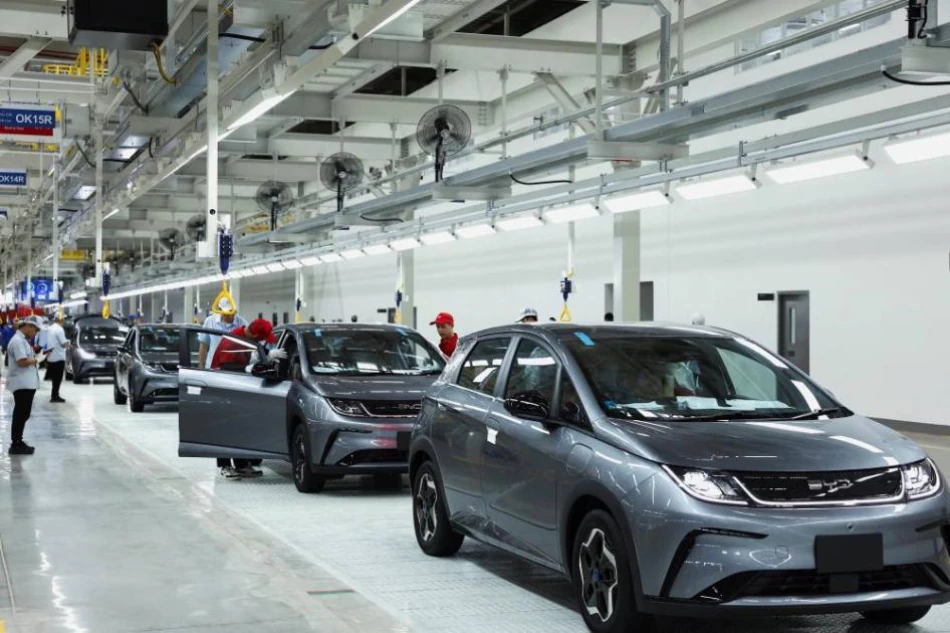
China's Car Sales Slump 0.8% in October, Highlighting Auto Market Challenges
China's car sales dropped 0.8% in October to 2.27 million units, breaking an eight-month growth streak as consumer confidence weakened and government tax breaks started to shrink. The decline marks a sharp reversal from September's 6.6% growth and signals potential trouble for the world's largest auto market.
The slowdown hit electric and plug-in hybrid vehicles particularly hard. Sales growth for these green cars decelerated to just 7.3% in October, down from 15.5% the previous month. This matters because China has been the global engine driving electric vehicle adoption.
Here's where it gets complicated. The Chinese government currently offers tax breaks worth up to 30,000 yuan ($4,212) for electric and hybrid cars. But these incentives are set to be cut in half starting in 2026. Car companies see the writing on the wall and are scrambling to boost sales before the cuts kick in.
Major players like Xiaomi, Nio, and Li Auto are now offering their own subsidies of up to 15,000 yuan to encourage buyers to take delivery next year. It's essentially a race against time to lock in customers while the full government benefits still exist.
The results are mixed across companies. BYD, China's dominant electric vehicle maker, saw its sales continue to fall last month. But Geely and Leapmotor hit record sales numbers, showing how uneven the market has become.
Chinese automakers are responding by looking beyond their home market. Export growth jumped to 27.7% in October from 20.7% in September, according to the China Association of Automobile Manufacturers. BYD and other companies are pushing hard into overseas markets to offset domestic weakness.
This shift matters for global markets. Chinese car exports have been growing rapidly as companies like BYD compete directly with Tesla and traditional automakers in Europe and other regions. The domestic slowdown could accelerate this international expansion.
The timing is tricky for investors and policymakers. China's economy is already facing headwinds, and the auto sector employs millions of people. A sustained decline in car sales could ripple through the broader economy, especially as the government reduces the fiscal support that helped drive recent growth.
Most Viewed News

 Omar Rahman
Omar Rahman






